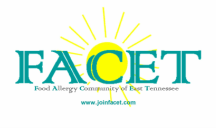Then add the anxiety. The what-ifs. The worry of what could happen if the wrong food is eaten. Will you be confident enough to treat when needed? What if a reaction occurs and you aren’t there to treat your child? Is your child being socially isolated, teased or bullied?
Managing food allergies is a heavy load.
As caregivers, we have to remember to stop and care for ourselves as well. This is incredibly difficult for some to do. You must protect your own health - mental, physical and emotional health.
You are important.
You must nourish yourself on a regular basis. Developing a self-care routine takes effort. I suggest you start by setting small goals. Just take a moment to relax and breathe. Find 5 minutes each day and a place of peace or stillness. Unplug from technology and social media. Too much time online (reading scary anaphylaxis stories, for example) can cause unnecessary anxiety. Let go of the thoughts of navigating birthday parties, the items you forgot to buy at the grocery store and all of the what-ifs that cross your mind. Yes, all of those thoughts are important, but so is your health.
Search for something that allows you to turn off the worries in your head. It could be going for a walk, enjoying a cup of coffee while reading a book, meet a friend for lunch. Once you have established something small, build on it. Schedule a monthly mom’s night out, join a gym or find a yoga class (and attend regularly), plant a garden, take painting classes. Find something that you enjoy and give yourself permission to enjoy it without feeling guilty.
Ensure that you get enough sleep and have a healthy diet. We often focus so much on what goes in (or doesn’t go in) our children’s bodies that we neglect our own intake.
Ask for help.
Trusting others is often a struggle for parents of kids with food allergies. I have heard many mothers state that they trust no one to watch their child. In some cases, that even includes her spouse and extended family. I highly encourage you to find a way to do it though. Who else is capable of caring for your child or preparing food for him or her? This trust isn’t something that should be given lightly, so start small. It could be watching your child for an hour, and then build on it.
Kids need to feel safe with more than one person. While we need to teach our children to not be too trusting, we also need to work to establish a circle of support around them (and us). This circle should include those that know how and when to administer their epinephrine, what brands of food are safe and how to prepare a safe meal. It can be detrimental to your child’s mental health to think that only one person is capable of caring for them properly. What if something happened to you tomorrow? Do you have a plan in place for your child's care? (Read more here about preparing for those "what if" moments).
You are setting an example.
When you practice self-care you are setting a healthy example for your child. You are showing him or her the importance of caring for him/herself and that good health is essential.
Parents of kids with food allergies often say that we do not want our child’s identity to be defined by food allergies. We also need to take this lesson for ourselves and not allow our identities to be defined by our child’s food allergies. We are moms and dads, but we also have needs and wants in our lives.
Yes, as a caregiver we often have to put the needs of others before our own. It’s important that we find a healthy balance with this. In order to be an excellent caregiver, you must also care for yourself.
I encourage you to look at your own state of self-care and see where you could improve the quality of your own life. Improvement in your wellness will be reflected in the care you are able to provide your child.





 RSS Feed
RSS Feed



